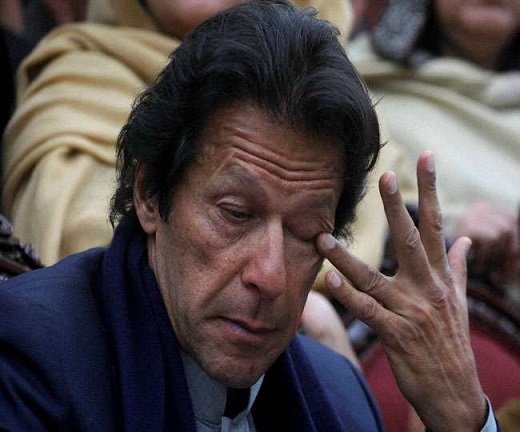Pakistan is unlikely to keep up with its hostile words or action on Kashmir if the Financial Action Task Force (FATF) meet in Paris on October 13-18 goes as planned.
Already in the “grey list” of the FATF, Pakistan could lose up to $10 billion and be economically devastated if it is “blacklisted” by the influential global body which primarily deals with countries that promote money laundering, drugs and terrorism and are a threat to global system.
Pakistan surely would need to tone done its rhetoric or any misadventure it might have planned on Kashmir, the focal point of Pakistan’s policy for decades, let its treated as a leper in international monetary system.
Pakistan needs three members of the 37-member FATF to avoid being blacklisted and its Prime Minister Imran Khan last week sought out the heads of Malaysia and Turkey to canvass support. China, which heads FATF, in any case is an all-weather friend. These three countries were the reason Pakistan avoided being “blacklisted” in June this year. The trio are likely to come again to Pakistan’s rescue in Paris.
Pakistan though is unlikely to slip out of the “grey list” as it would require the support of 15 of 37 members of FATF which is too uphill a task. The United Nations General Assembly session last month saw it being isolated on the world stage with no significant world power, but for China, coming to Pakistan’s support.
The pressure is mounting by the hour on Pakistan as Asia-Pacific Joint Group (APJG), a FATF sub-group, held a review meeting with Pakistani officials in Bangkok in August on the issues of anti-money laundering and combating financing of terrorism (AML/CFT) regimes. It found Pakistan to be in violation of as many as 21 of the 27-point action plan and placed it in the Enhanced Follow Up list. Of the 40 technical compliance parameters, Pakistan was non-compliant on 30 parameters. And, of the 11 efectiveness parameters, Pakstan was adjudged as “low” on 10. These finding would surely have a huge bearing on Pakistan’s fate in the FATF meeting in Paris in less than a fortnight’s time.
India, meanwhile, is on an overdrive to ensure that Pakistan is unable to escape the “noose” of FATF. The trio of prime minister Narendra Modi, foreign minister S. Jaishankar and national security advisor Ajit Doval have spent last few weeks in canvassing support from as many as 24 of the 37 members of the FATF.
While Modi sought out Belgium, France, US, UK, Italy, New Zealand and South Africa among others in the UN, Jaishankar held parleys with his counterparts from Australia, Brazil, Canada, China, Germany, Italy, Netherlands, Singapore, Turkey and Japan in New York. He also looked for support from the two regional organizations of the FATF, the Gulf Governing Council (GCC) and the European Commission (EC). Doval meanwhile is in Saudi Arabia mustering support from the oil kingdom which has shunned Pakistan in favour of India in recent months.
If Pakistan is “blacklisted” it could virtually be an outcast in the international financial system. Its banking system would be crippled and be it imports or exports, remittances or access to international lending order, would all be overwhelmed. It would have trouble securing loans as foreign financial institutions would be wary of dealing with Pakistan lest they fall foul of international violations on the issues of money laundering, drugs and terrorism. Foreign investors won’t be enamoured either.
It’s not the first time Pakistan finds itself in the “grey list” of FATF. It was first put under watch in 2008 and later between 2012-2015. Apparently, the deterrence hasn’t s worked. As India has pointed out, Pakistan is home to 130 UN-designated terrorists and 25 terrorists listed by the UN.
Pakistan though is not the only country in the “grey list” of FATF. The other countries in the last are Ethiopia, Serbia, Sri Lanka, Trinidad and Tobago, Tunisia and Yemen.
Presently only two countries are in the “blacklist” of FATF—Iran and North Korea. Pakistan is close to joining the unenvied group of international order. If Pakistan is able to avoid being blacklisted, it would be a damning reflection on its benefactors–China, Malaysia and Turkey—as they would be seen in support of terrorism.
Pakistan, truth to tell, is today seen a breeding ground for terrorists and has done little to curb them. There has been no demonstrable action or persecution of globally-designated terrorists or terror networks. Its law enforcement agencies are yet to even begin investigating terror groups like Da’ish, Al-Qaeda, Jamaat-ud Dawa, Falah-e-Insaniat Foundation, Lashkar-e-Taiba, Haqqani Network or persons who are affiliated with Taliban. Terrorists such as Masood Azhar and Hafiz Saeed operate with impunity and protection from the state of Pakistan.


